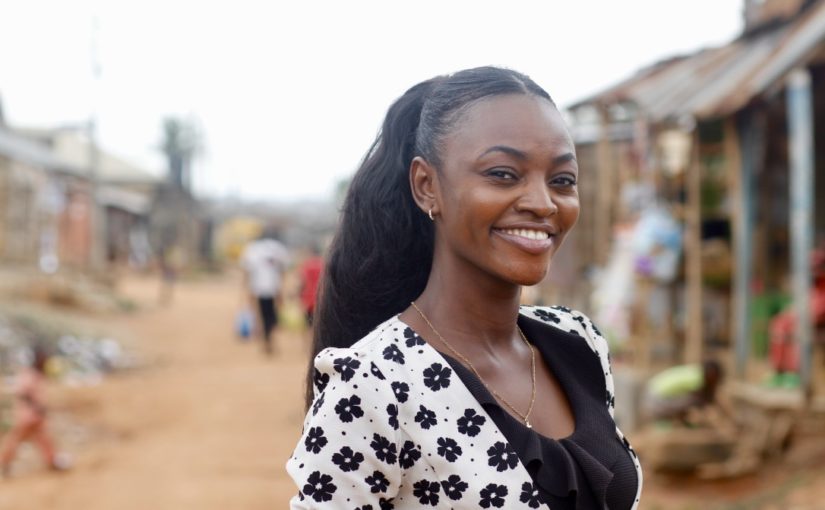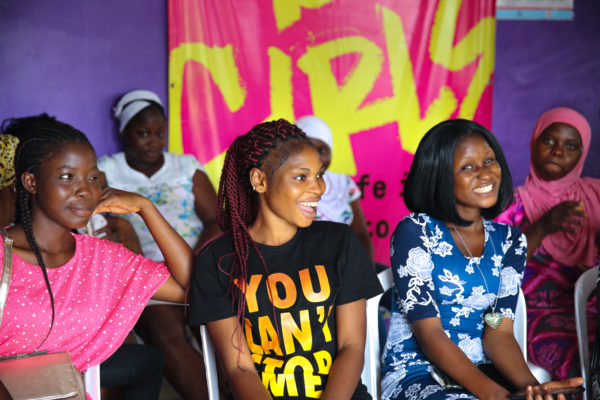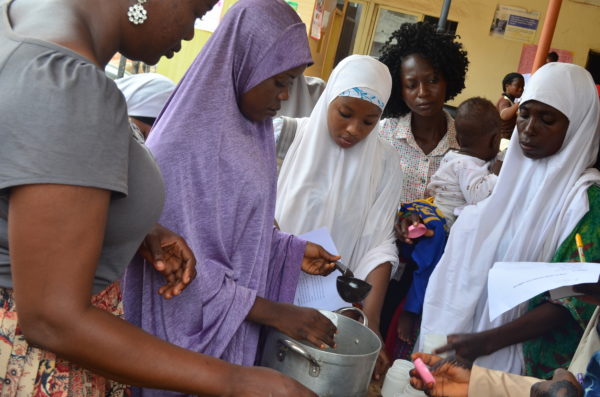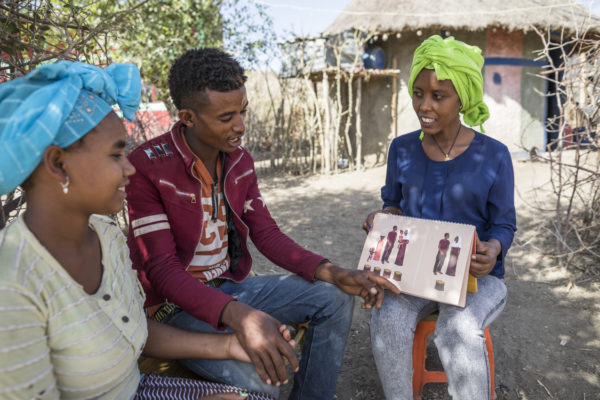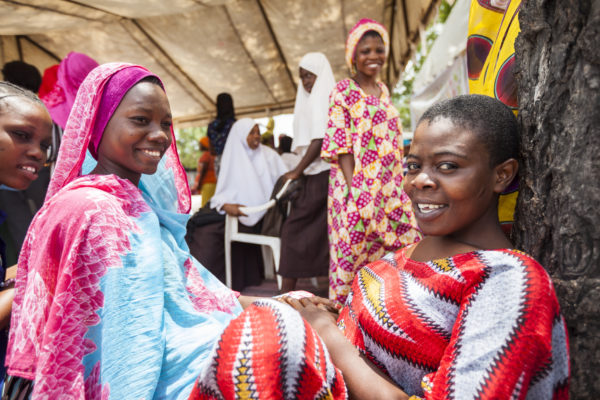A Q&A with Joy Enemari, an A360 Nigeria Young Designer
Joy’s sister was 16 when she dropped out of school.
It started with a missed period. A positive test result – and an unplanned pregnancy that dimmed her dream of finishing her studies.
“If my sister had known that contraception was an option, she would have been a much different person today,” Joy says. “She would not have delayed her education.”
But amidst the myriad of social and cultural barriers that block young people from making the sexual and reproductive health (SRH) decisions that shape their lives, Joy’s sister – like many young people across Nigeria – didn’t have the tools, nor information to protect her from a pregnancy before she was ready.
In Southern Nigeria, three in 10 girls want but don’t have access to modern contraception. Across the nation, 1 in 4 pregnancies among this age group will end in an abortion, many of which are unsafe.
Joy – through her role as a young designer PSI’s flagship youth-powered SRH program Adolescents 360 (A360) in Southern Nigeria – is on a mission to change the reality for girls like her sister.

Joy, alongside 280+ A360 young leaders across Nigeria, Tanzania and Ethiopia and among a diverse crew of experts, digs deep into young people’s lives to understand how A360 can pave pathways for girls aged 15-19 to access contraception, where they want and how they say they need. Joy is a data collector; her home base goes between the field to collect, and the office to analyze information.
From implementation in January 2018 through May 2019, more than 48,950 girls have voluntarily taken up a contraceptive method through 9ja Girls. And of the three in five girls who choose contraception, about one in four will opt for a long acting method.
With each girl reached, Joy feels reassured: that’s one more girl with a revitalized chance to pursue her dream – and complete her education.
We asked Joy for her insight into how young people’s voices power youth programs like A360 to strengthen SRH decision making, and ensure young people’s needs remain at the core, every step of the way.
Q: When did you join A360, and what motivated you to apply for work as a Young Designer?
JOY ENEMARI: I joined A360 in April 2018. I have always wanted to work with adolescents and to serve humanity.
Q: You are the team’s youth data queen. Tell us about what you collect.
JOY: I, in partnership with my team, collect data from our girls and the clinics we operate in. Our goal is to ensure that the girls who visit the facility for the first time are accurately inputted into our system so we can effectively track their progress to understand what is encouraging them – or discouraging them – from continuing to engage with A360’s service delivery. And having young people like myself involved as data collectors ensures that we do not go down a path in which interventions are out of touch with young people’s real needs and day-to-day realities.
Q: Tell us about an insight you lent, and how it transformed how your team operates.
JOY: Continual monitoring and evaluation – all with the ability to adapt our programs as we scale – makes A360 programming responsive to youth. Which is why I wanted systems to monitor our performance.
I suggested we create an online template where we could input our weekly data as a team to monitor facility performances, in addition to carrying out weekly data quality reviews with facility providers so we could track service delivery performance. I created documents for providers to easily register and retrieve data on each consumer. These changes allowed us to better organize and more easily access the information to understand what is and isn’t working. This allows us to make adjustments, as needed, and replicate and adapt successes across other facilities.
(Looking to create your own data tracking system? This template is a good place to start!)
Q: How does a youth perspective strengthen AYSRH programming?
JOY: Whether it be in data collection or technical advising, young people understand the challenges and joys of being an adolescent firsthand.
My perspective allows adolescents to feel that their needs and opinions are reflected in the decision making and implementation process. What they tell me informs the analysis I apply to the data collected. It creates a positive relationship and a sense of belonging and trust between those designing and those being designed with and for.
Looking for youth-powered tools to guide data collection – and course correct, in real-time?
Dive into the resources you can use, today, in the A360 Open Source’s Adaptive Implementation section.

